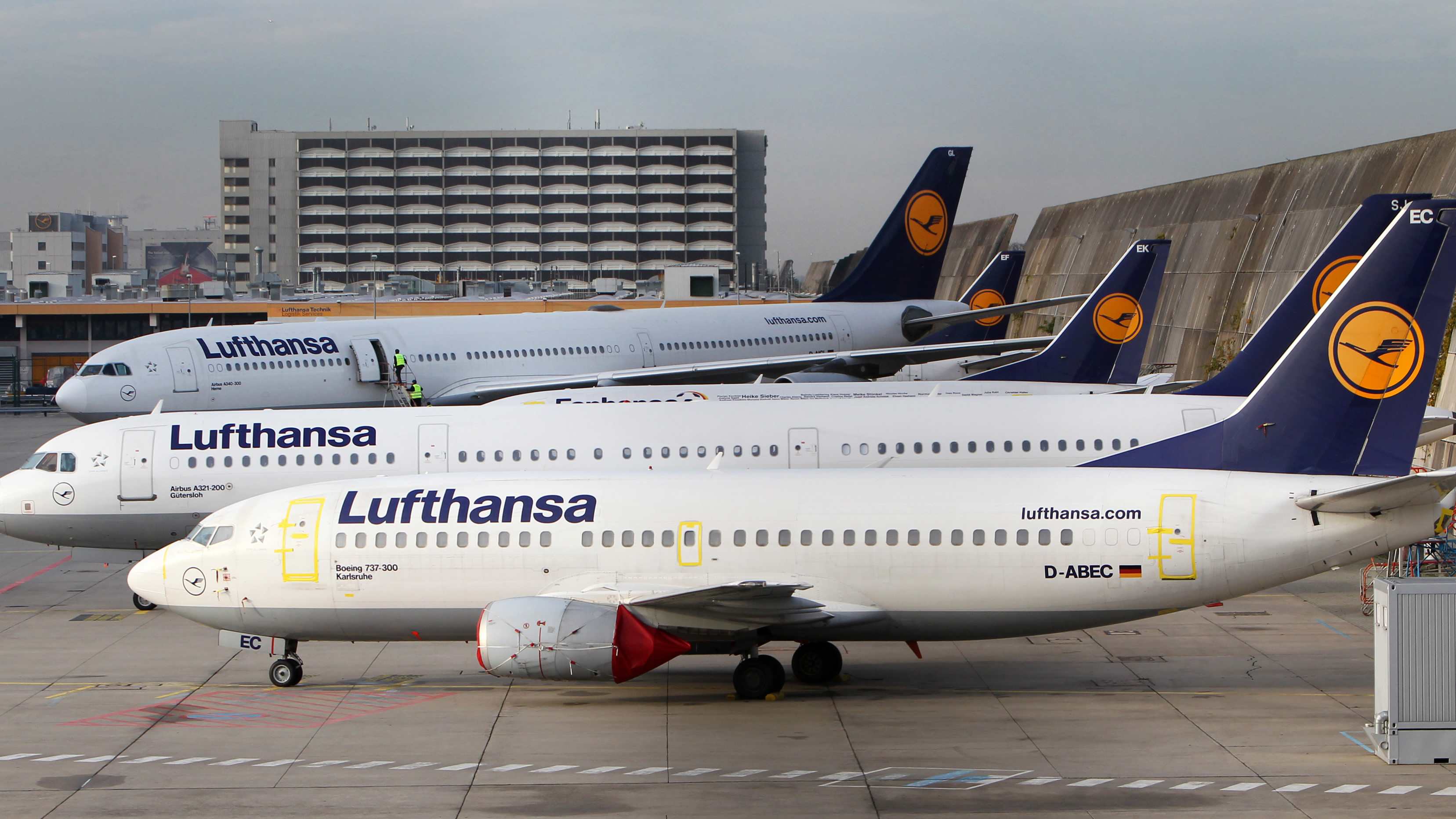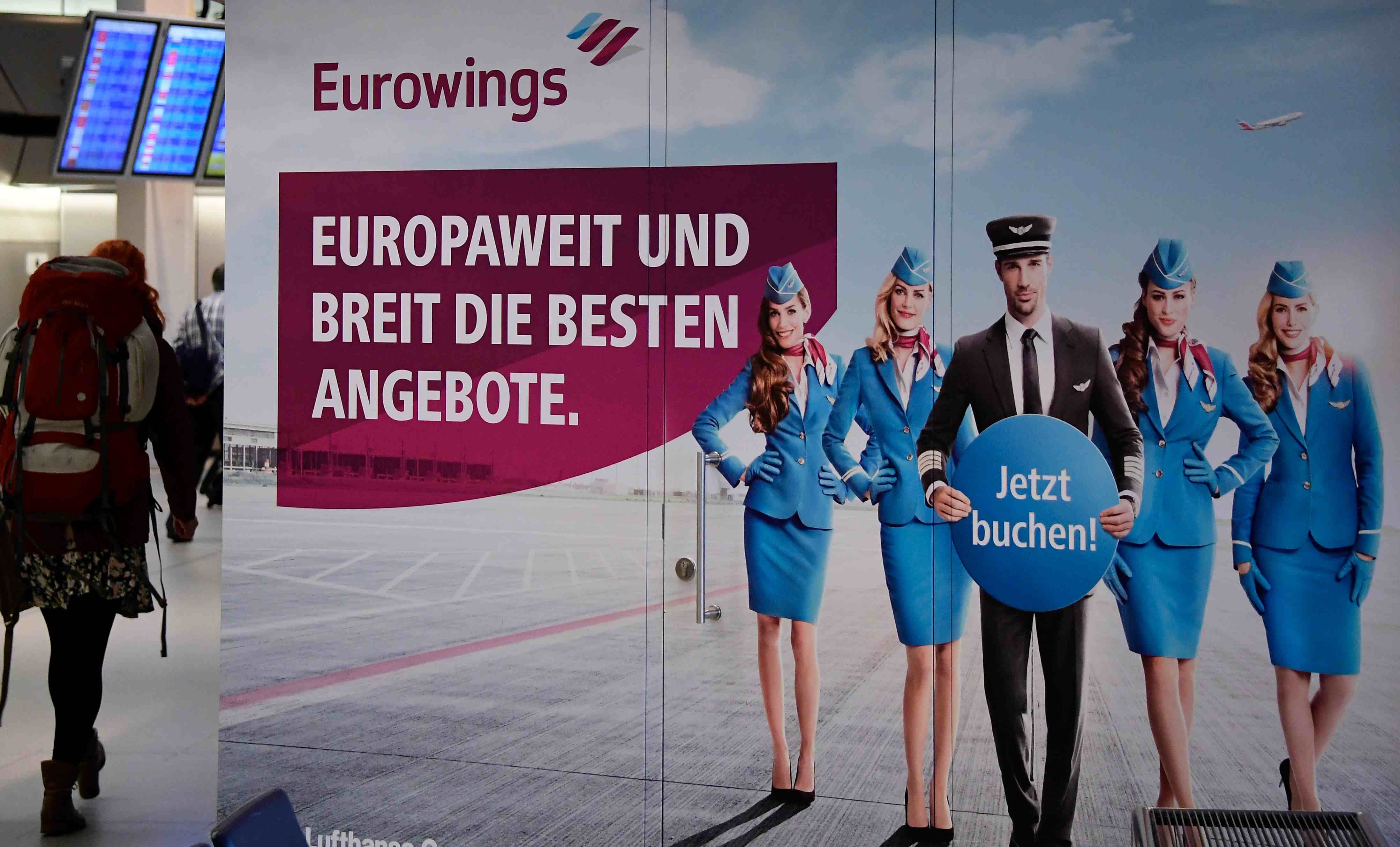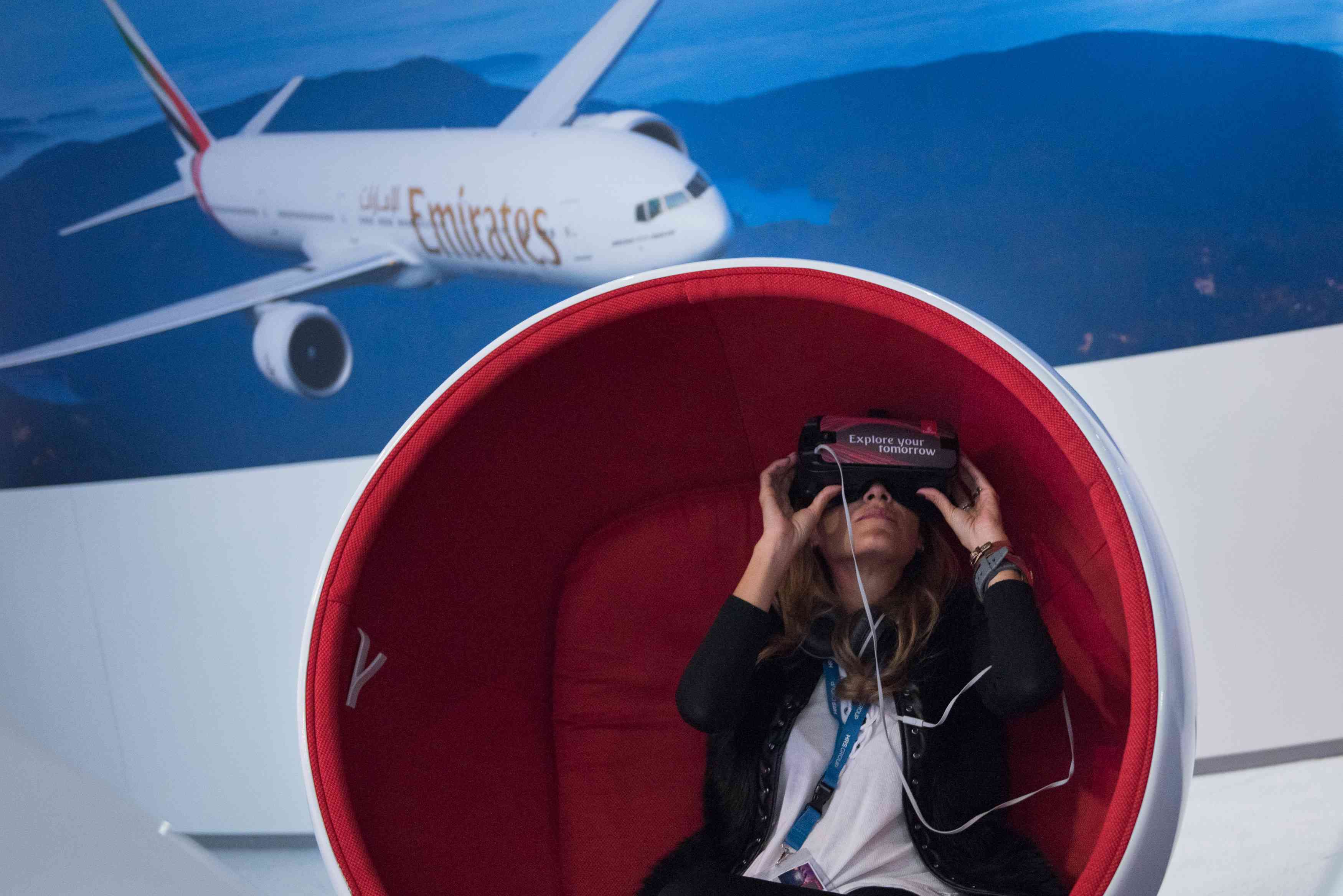
Business
22:51, 07-Aug-2017
Foreign competitors give German airlines run for their money

German airlines are seeing their profits plunge amid a surfeit of foreign competitors in their home base, said Xinhua news agency in a report quoting German media.
But despite losing profits, German carriers including Lufthansa, Air Berlin, Condor and TUI Fly actually witnessed a five percent annual increase in traveler numbers to 76.8 million during the first half of the year, according to the German Aviation Association (BDL) data.
The association last year reported a 0.7 percent drop in passenger numbers.
"German aviation companies are still losing market share," the president of BDL Stefan Schulte told newspaper Frankfurter Allgemeine Zeitung on Monday.

A passenger walks next to an advertising board of airline Eurowings at Berlin's Tegel airport on October 27, 2016. /AFP Photo
A passenger walks next to an advertising board of airline Eurowings at Berlin's Tegel airport on October 27, 2016. /AFP Photo
Business for overseas rivals increased by 6.4 percent to 109.8 million customers during the same period. In the first half of 2017, Lufthansa - including its budget Eurowings - Air Berlin, Condor and TUI Fly only accounted for 56 percent of available seats, down from 62 percent a few years ago.
Schulte, also CEO of Fraport AG, which operates Frankfurt International Airport, said aviation taxes and security costs are to blame for the loss in market share. In 2016, airlines paid 1.07 billion euros (1.26 billion US dollars) in taxes to authorities, and had to bear 656 million euros of expenses for passenger and baggage controls.
Schulte argued that there were reasons to support local airlines aside from their roles as job creators, stressing the significance of domestic airlines with international hubs in Germany as a means to preserve a diversity of routes.
"If we only relied on foreign carriers, Germany's connections in air traffic would be determined only by whether we are a profitable market for them," he said.

A visitor uses virtual reality (VR) glasses at the Emirates stand at the International Tourism Trade Fair (ITB) on March 8, 2017 in Berlin. /AFP Photo
A visitor uses virtual reality (VR) glasses at the Emirates stand at the International Tourism Trade Fair (ITB) on March 8, 2017 in Berlin. /AFP Photo
The rise of budget airlines from other European nations, including Easyjet, Norwegian and Wizz Air, is a primary driver behind recent changes in the landscape of the German aviation market.
In total, non-German European airlines saw an 8.8 percent increase in Germany during the first half of 2017. The German market for no-frills airlines has more than doubled since 2011.
Non-European premium carriers, including Emirates, Etihad, and Qatar Airways, further contributed to German firms' shrinking market share.
Schulte expressed hope that the German government would reassess reform plans to lower the financial strain of aviation taxes and heightened security checks made by the Transport Ministry of Alexander Dobrindt (CSU) during the next parliament.
(With input from Xinhua)

SITEMAP
Copyright © 2018 CGTN. Beijing ICP prepared NO.16065310-3
Copyright © 2018 CGTN. Beijing ICP prepared NO.16065310-3